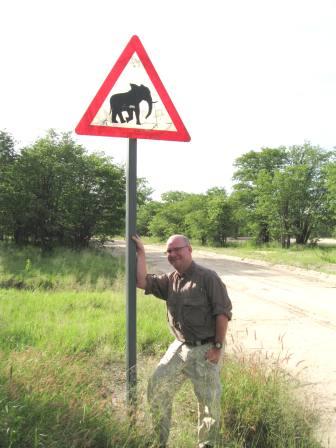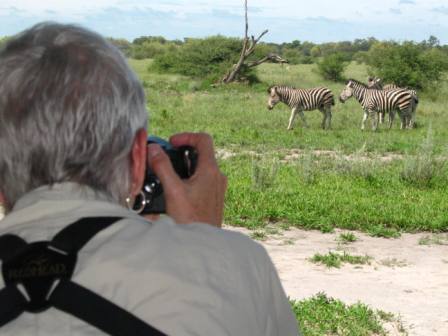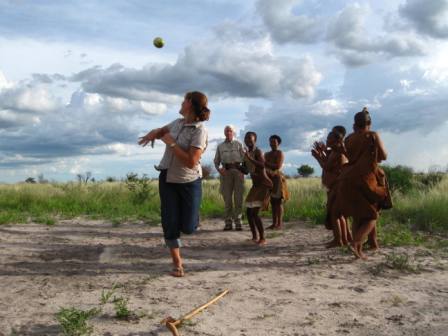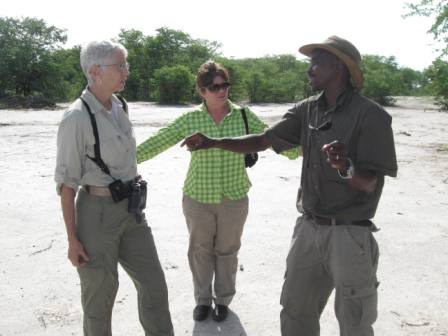Dave Fox is the founder of Globejotter Tours, and the author of Getting Lost: Mishaps of an Accidental Nomad and Globejotting: How to Write Extraordinary Travel Journals (and still have time to enjoy your trip!) He lives in Seattle, Washington. Dave took a few minutes to answer a some questions about Globejotter’s tours which incorporate writing into each trip in Part 1 on foXnoMad, below is Part 2 of the interview.
Also, if you’d like to join Dave on his next tour to Vietnam and happen to mention you heard about it from Travel Blog Advice or foXnoMad, you’ll receive a $200 discount.

Where do the tours go?
Our next trip is to southern Vietnam in October. I first went there a couple of years ago and instantly fell in love with the country. The people are wonderful, the scenery’s incredible, and the food is scrumptious. I’ve been back several times since then and I’ve got close friends there now, including my pal, Phúc, who’s a locally licensed guide and will be co-guiding the trip with me. (Yeah, I know. People giggle at his name. It rhymes with “book,” not “buck,” and it’s as common a name in Vietnam as Dave is in America.) We’ll start and finish in Ho Chi Minh City. We’re also going to spend three days in the Mekong Delta, and four days in Mui Ne on the South China Sea coast.
Our other big destination so far has been Botswana. I partnered on that trip with Bill Given, an African wildlife specialist. We visited the Okavango Delta and Kalahari Desert and had an amazing time. We’re talking about another Botswana trip sometime next year, and possibly something in East Africa as well.
We can also do private tours elsewhere if there’s a small group of people with a particular destination in mind. And, I’m hoping to do some short trip weekend writing getaways in the United States starting in 2011.
 How do you think people can be motivated to write during their journey in general?
How do you think people can be motivated to write during their journey in general?
That’s one of the biggest challenges people face; in fact, in my book, Globejotting: How to Write Extraordinary Travel Journals, I dedicate an entire chapter to finding time to write and staying motivated.
I think the thing that bogs people down is perfectionism. They try to create their best writing in the middle of their trips. When beautiful prose doesn’t flow effortlessly from their pens, they feel like they’re wasting precious vacation time, and they give up. I encourage people to use their journals not as the place where they’ll create their best, most polished writing, but instead as a place to splash as many details onto their pages as quickly as possible and collect material for more polished writing later. If they’re only journaling for themselves and don’t plan on doing any rewriting, their journals have a lot more memory triggers to help them recall their trips later on. If they want to write more polished travel stories, their journals serve as rough drafts, with lots of details to work with.
Some people are reluctant to write because they’re “terrible” at it or feel self-conscious about their ability. What is your advice for them?
I’m not sure where it came from, but there’s a myth that you are either born a “gifted” writer or you’re not. That’s just not true. You don’t become a talented writer overnight, anymore than you would become a talented violinist or a skilled brain surgeon overnight. The more you practice, the better you get.

So I encourage people to create the writing they think is “terrible” and give themselves a break when they’re starting out. Understand that nobody creates great writing in their first draft. So write a bad first draft. Then start shaping it into something better. Find your favorite professional writers, pay attention to how they write, and ask yourself what they’re doing differently from you. And seek help from other writers. Don’t be afraid to share your work with more experienced writers. We all started out “terrible” and most professional writers who are decent human beings understand that beginning writers are going to have habits they need help breaking. Whether you learn from classes, books, writers’ groups, or one-on-one mentoring, there are all kinds of basic techniques that will help you become a better writer. So, write as much as possible, rewrite and improve things, learn techniques, seek feedback, and welcome that feedback even when it stings a little. Writing well isn’t rocket science. You just have to learn how to do it and practice as much as possible. (I guess you could say that about rocket science too, but you get the point.)
And remember – when you read a great book or story, it wasn’t composed as effortlessly as you are reading it. Before our work is fit for public consumption, most of us who write professionally spend plenty of time writing “terrible” first drafts, whacking ourselves on the head, swearing at our computers, toiling over details and descriptions that aren’t quite right, and eventually, with a lot of trial and error, finding the right words to craft a great story.
 What is your writing background?
What is your writing background?
I’ve loved writing as long as I can remember. I got started in travel journaling at a young age. I was born and raised in America, but my family moved to England for a year when I was eight, and we traveled all over Europe and northern Africa that year. I’d write little stories about our adventures, and nearly 30 years later, I published my first travel humor book (which even includes a few stories from my childhood year in England.)
I wrote for my high school newspaper. In college, I majored in journalism. I worked in newspapers and radio for a while, and for an educational publishing company before I got serious about travel and humor writing. Along with writing, foreign travel has always been my other passion. Travel to me is really about collecting stories as I cross paths with people who are different from me. I started writing those stories down, and they eventually evolved into my travel writing and tour guiding career.
Any advice for travel bloggers or folks wants to start a travel blog as a journal?
Blogging is different from traditional travel journaling in a couple of ways. For starters, it’s read by others, not just ourselves, so we tend to censor our thoughts more. In addition, it’s instant, which I love. I was in Saigon one time, having a beer at a streetside bar around at 2 a.m., when a group of ladies showed up across the street carrying a stack of little plastic tables and chairs and two huge pots of food. In minutes, they set up a makeshift restaurant on the street and were open for business. I thought this was so cool. Thirty minutes later, back at my hotel, I blogged about it before going to bed. Minutes later, my friends at work back in America were right there with me.

The best advice I can offer about creating a travel blog that others will want to read is it shouldn’t sound like a traditional travel diary. Step-by-step accounts of your day aren’t so interesting. Instead, pick specific stories, insights, or personal encounters, and write each one as a separate blog entry.
Something else I do when travel blogging – I think this is really important – is I always carry a pocket-sized notepad to scribble things down throughout my day. I make quick notes or lists of topics to blog about later. Occasionally, I write entire blog entries in my notepad so I can type them quickly later. When we travel in unfamiliar places, we’re hit with so many impressions, we can’t remember them all, nor do we have time to blog about all of them. Jotting a few quick notes about the ideas that flit through your brain will help you remember your best ideas when you can find time at a computer.
Any upcoming travel plans?
My next big trip is to exotic Dayton, Ohio, for the Erma Bombeck Writers’ Workshop. It’s a fantastic writing workshop with an emphasis on humor writing. It’s where I landed my first book deal, so I always love going back there. (Erma Bombeck was an American newspaper columnist who was born in Dayton, which is why they always have the conference there. My one complaint, with all due respect to the good people of Dayton, Ohio, is I wish she had been born in Hawaii.)
Beyond that, my next overseas travels are to Europe from June through August. In addition to my own tours, I work in the summer for European travel expert Rick Steves, and guide his Scandinavia and “Best of Europe” tours. Then I’ve got my Globejotter writing tour in Vietnam in October.
Dave, thank you very much for the wonderful interview and the great advice on writing, blogging, and journaling. You can find out more about Dave Fox on his website Globejotter Tours, and check out his two books, Getting Lost: Mishaps of an Accidental Nomad and Globejotting: How to Write Extraordinary Travel Journals.
